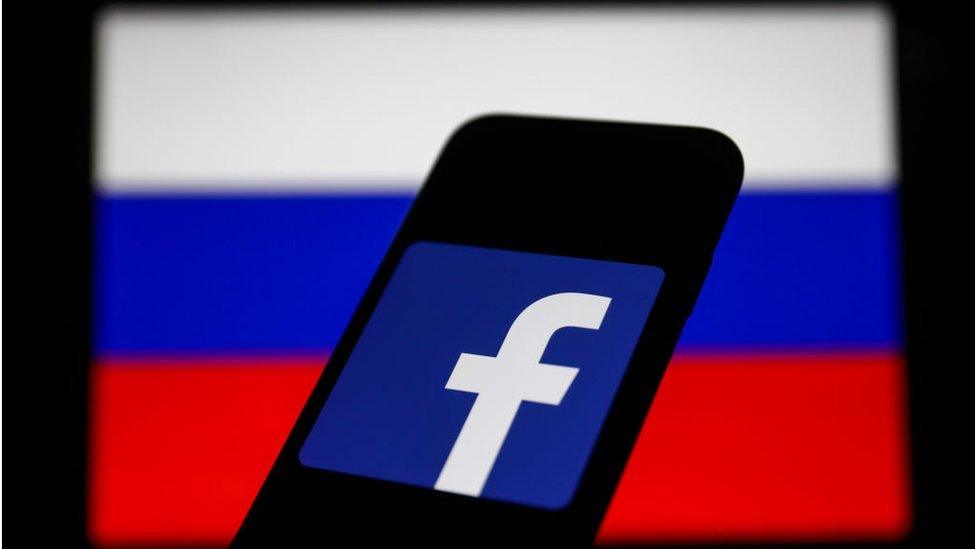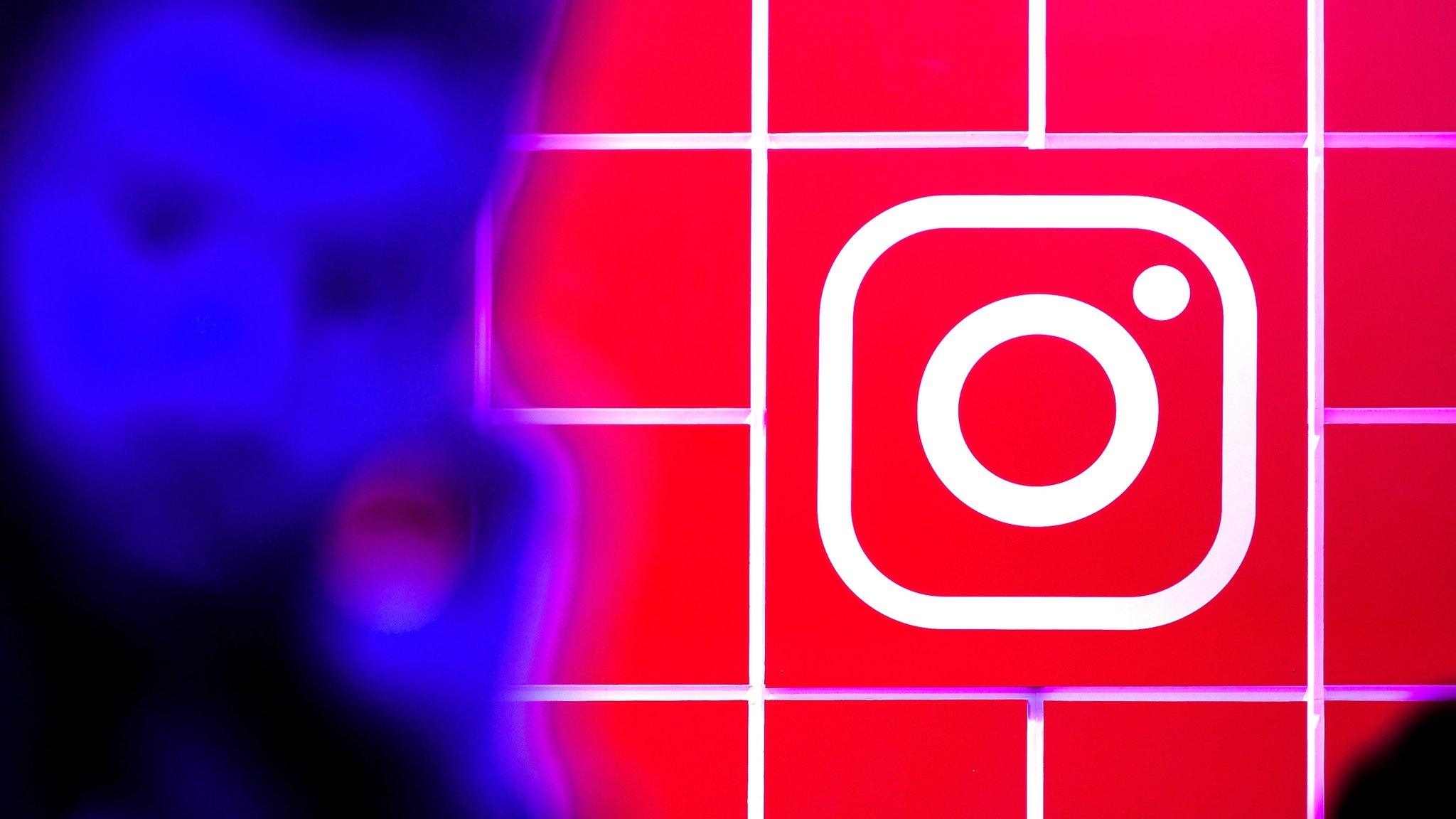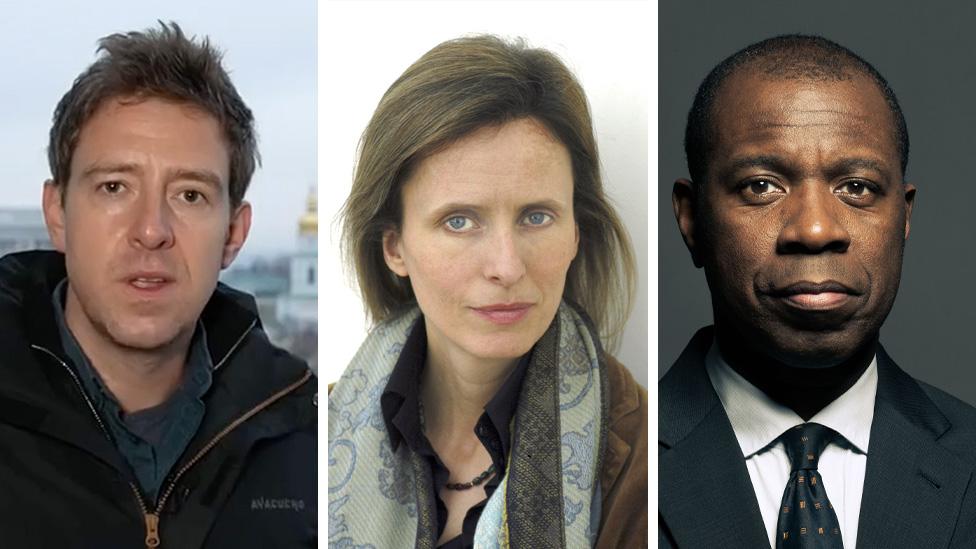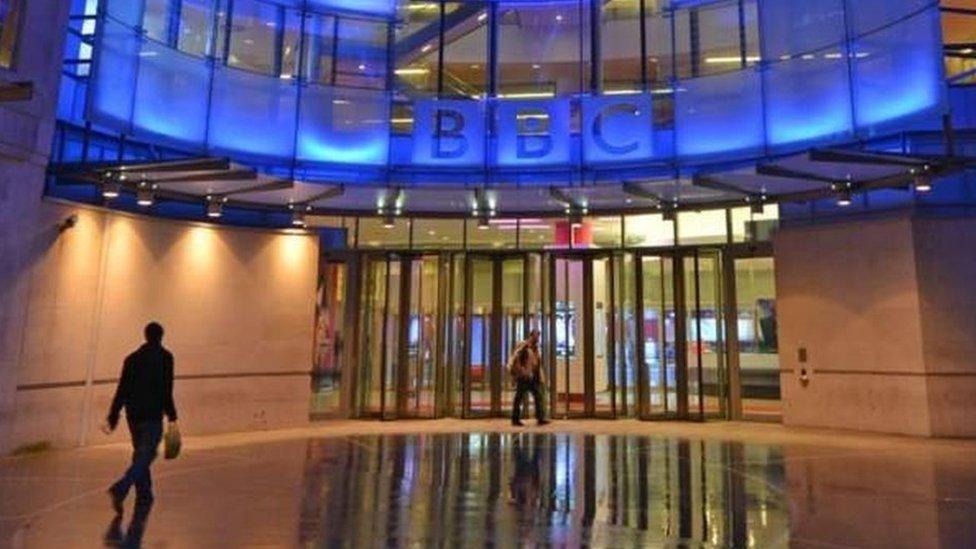Russia confirms Meta's designation as extremist
- Published

Facebook has been unavailable in Russia since March
The Russian authorities have added Meta - which owns Facebook and Instagram - to a list of terrorist and extremist organisations, the country's Interfax agency reports.
The two platforms were banned in Russia in March for "Russophobia".
It followed Meta's announcement it would permit posts such as "death to Russian invaders" but not credible threats against civilians
Meta appealed against the ban but it was upheld by a Moscow court in June.
The ban did not apply to WhatsApp, which Meta also owns.
Violent sentiments
The US technology giant has rejected accusations it promotes anti-Russian sentiment.
In March, a Meta official told BBC News it was making a temporary exception to its normal policies, "in light of the ongoing invasion of Ukraine", to allow those affected to "express violent sentiments towards invading armed forces".
The company has been approached for comment about the latest developments
According to Interfax, being placed on a list of extremist organisations means banks can freeze Meta's funds in Russia.


The battle lines between Western technology platforms and Russia were drawn months ago.
Facebook has not been missed as much as it might have been - because of the popular Russian clone, VK.
But Instagram remains huge in Russia - and the widespread use of virtual private networks (VPNs) means the ban on the platform has not actually stopped people accessing it.
This new official "terrorist" designation could change that though.
It might mean it is now a criminal offence to use Instagram, even via a VPN.
It is also unclear whether the designation includes WhatsApp.
Banning this, the most popular messaging app in Russia, would cut citizens off from the outside world in a truly profound way.

Other groups on the list include the Taliban and Russian opposition parties.
Twitter has also been restricted in Russia.
Russia has faced international isolation and strict economic sanctions since invading Ukraine and has responded by clamping down on the means of spreading dissent.
It has passed laws restricting what can be reported in the country - punishable by long prison sentences.
One of the country's few remaining independent news organisations, the Novaya Gazeta newspaper, suspended operations in March, after receiving warnings from Russia's media watchdog.
A number of high-profile international journalists, including BBC News correspondents Clive Myrie, Orla Guerin and Nick Robinson, have also been barred from working in Russia.
Related topics
- Published11 March 2022

- Published14 June 2022

- Published5 March 2022
